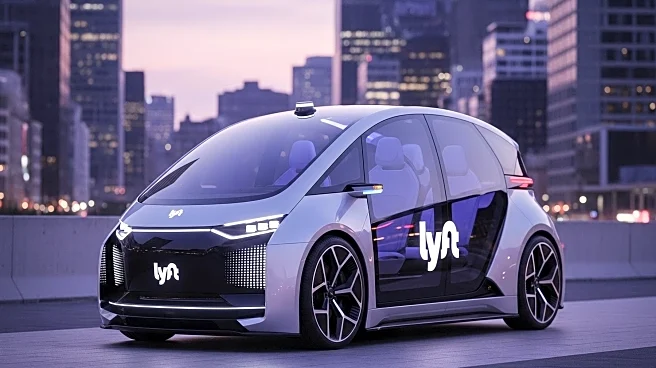What's Happening?
Lyft has announced a new partnership with Waymo to introduce a robotaxi service in Nashville, set to launch next year. This marks the first commercial collaboration between the two companies, with Lyft providing comprehensive fleet management services for Waymo's autonomous vehicles. The partnership will allow Nashville riders to access Waymo's robotaxis through the Waymo One app, with plans to integrate these vehicles into Lyft's platform over time. This development follows Waymo's successful expansion into other major U.S. cities, including Phoenix, San Francisco, and Los Angeles. The announcement led to a 10% increase in Lyft's stock value, reflecting investor optimism about the company's strategic move to enhance its competitive position in the ride-hailing market.
Why It's Important?
The partnership between Lyft and Waymo is significant as it represents a strategic effort by Lyft to strengthen its position in the competitive ride-hailing industry, particularly against its larger rival, Uber. By integrating Waymo's advanced autonomous technology, Lyft aims to offer innovative transportation solutions and potentially reduce operational costs associated with human drivers. This move could also accelerate the adoption of autonomous vehicles in urban areas, influencing public transportation dynamics and urban planning. For Waymo, the collaboration expands its market presence and reinforces its leadership in the U.S. robotaxi sector. The success of this partnership could set a precedent for future collaborations between technology and transportation companies, impacting industry standards and regulatory frameworks.
What's Next?
As the partnership progresses, both companies will focus on the operational aspects of launching the robotaxi service in Nashville. This includes ensuring vehicle readiness, maintenance, and infrastructure support. Stakeholders will be closely monitoring the service's performance and customer reception, which could influence future expansions and partnerships. Additionally, regulatory bodies may evaluate the implications of increased autonomous vehicle operations in urban settings, potentially leading to new guidelines or policies. The success of this initiative could encourage other cities to adopt similar services, further integrating autonomous technology into public transportation systems.











